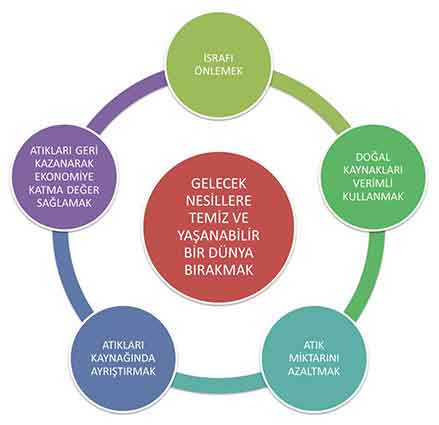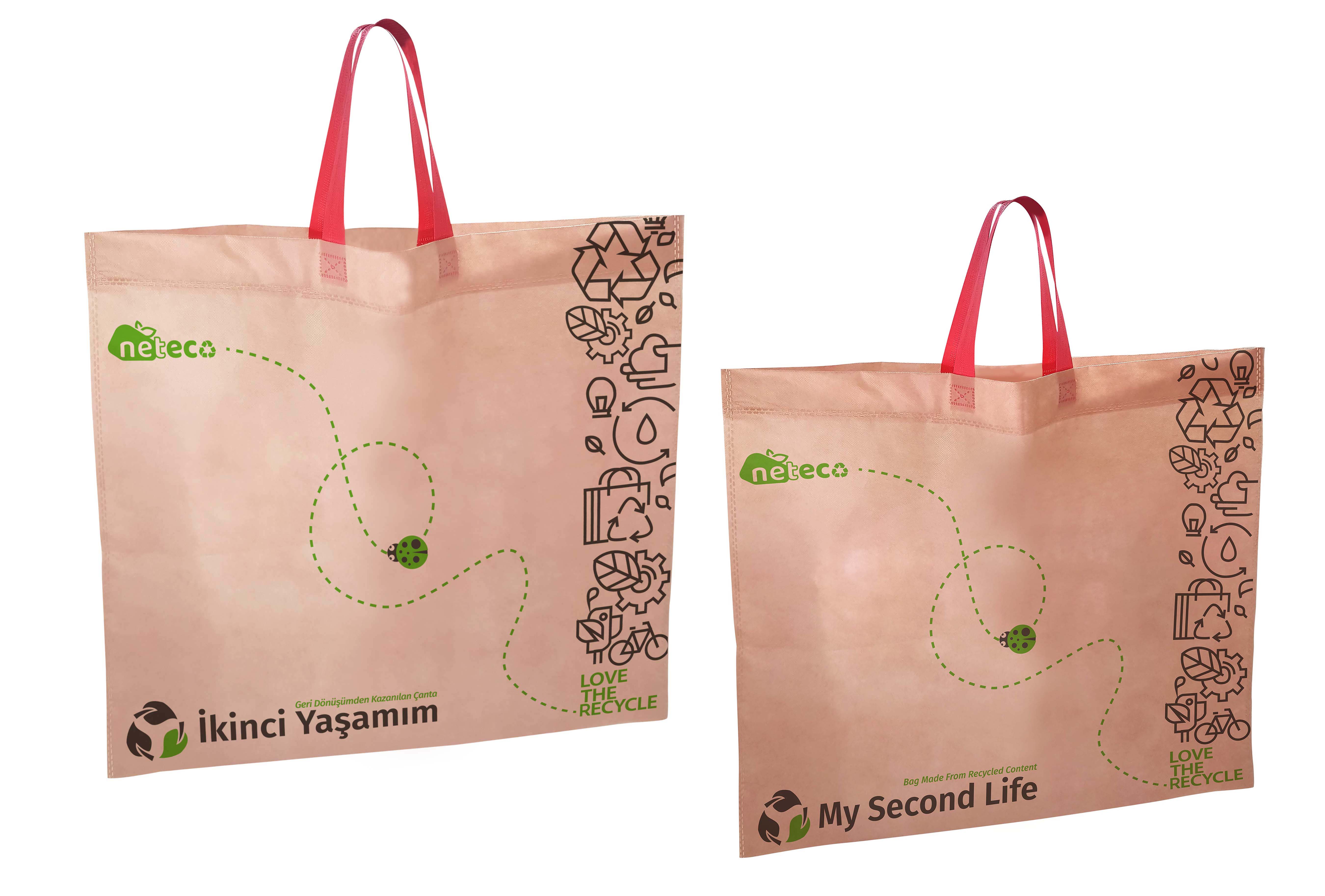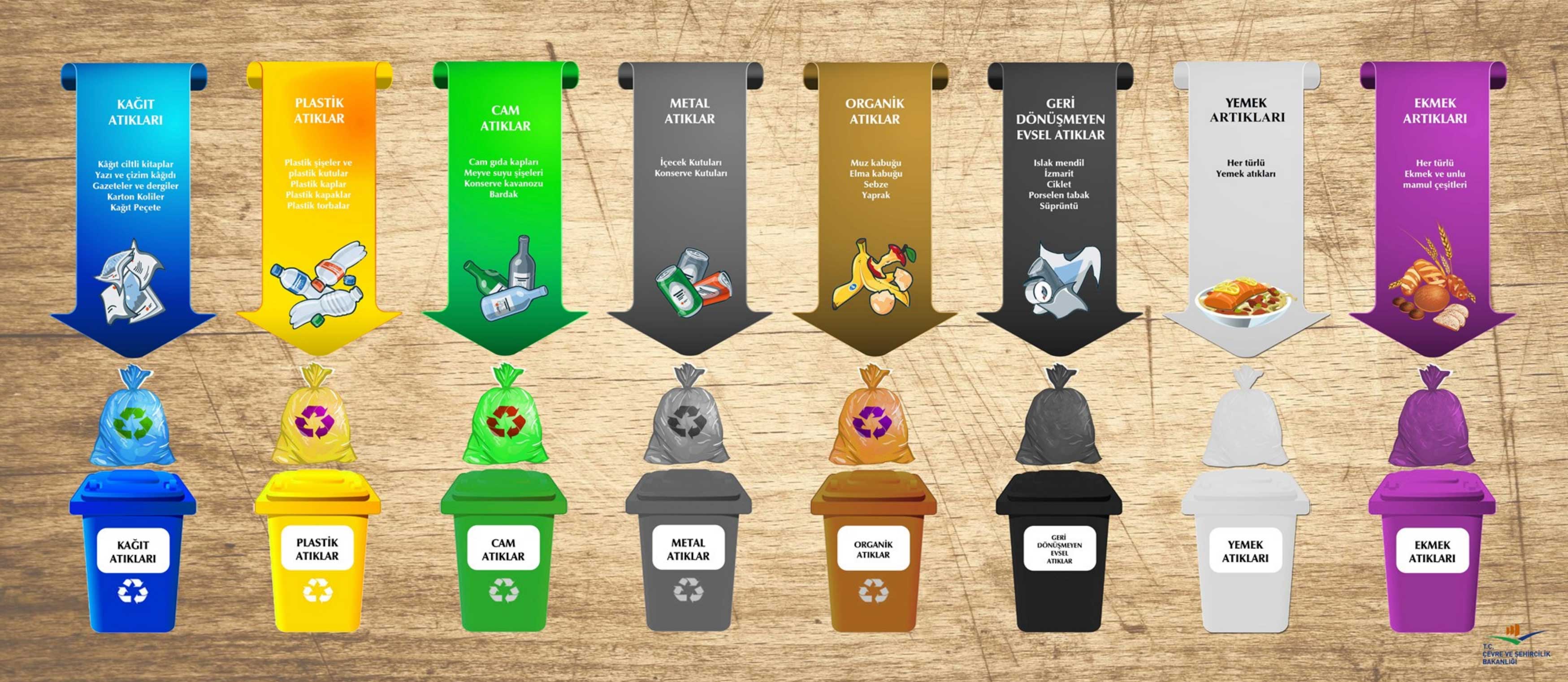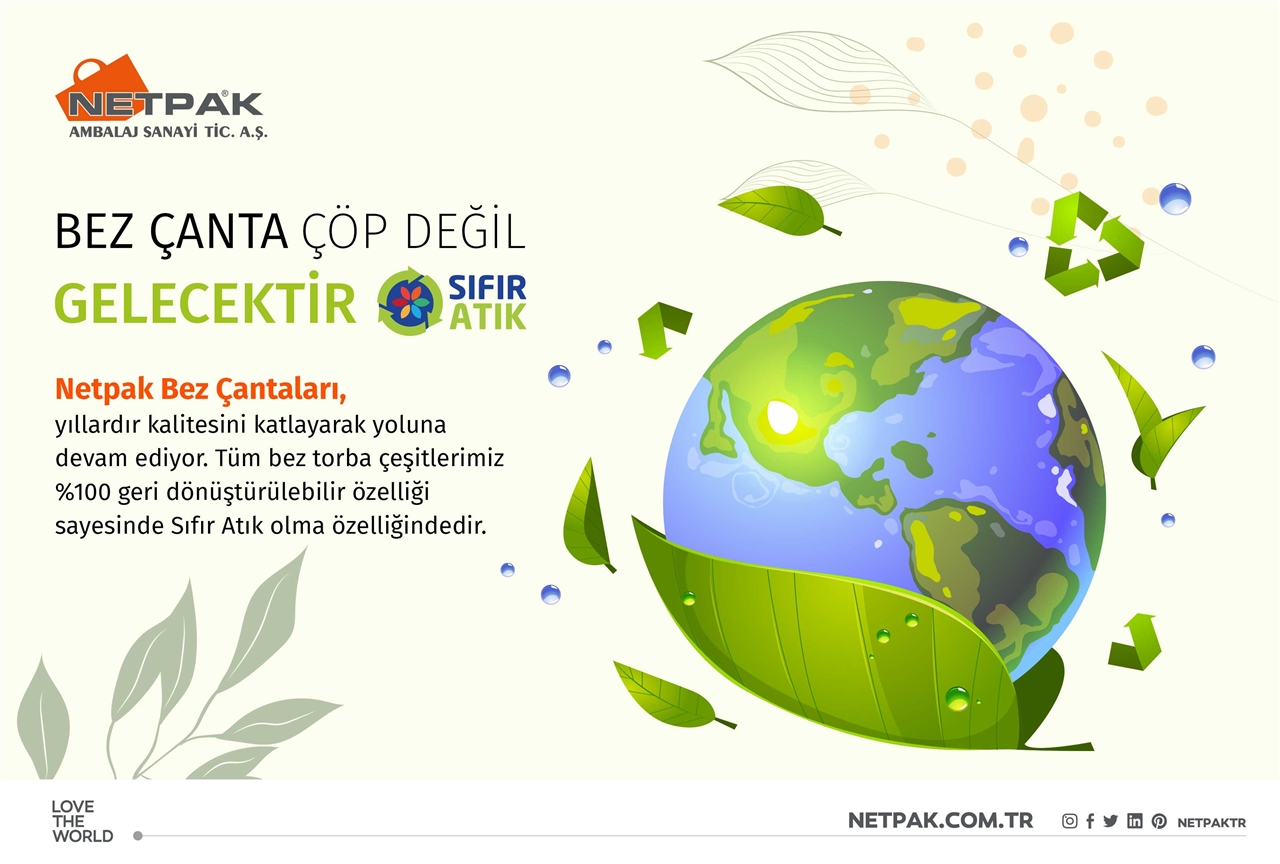While Netpak Tote Bags have continued on its way by increasing its quality for years and expanding its usage areas; At the same time, it continues to be one step ahead of its competitors with its Clean Environmental Policy and Social Responsibility projects. All of our tote bags are Zero Waste thanks to their 100% recyclability.
SO WHAT IS ZERO WASTE?
“Zero Waste” is a goal defined as a waste prevention approach that includes preventing waste, using resources more efficiently, reducing the amount of waste generated, establishing an effective collection system, and recycling waste. Disposal of wastes without being evaluated in the recycling and recovery process causes serious resource losses in terms of both material and energy. In recent years, zero waste implementation studies have become widespread all over the world, individually, institutionally or throughout the municipality.
Here is the reason why Netpak tote bags are preferred both in markets and in stores in shopping centers; In addition to its quality, it is zero waste as an environmentally friendly product.

WHY ZERO WASTE TOTE BAG?
Natural resources support the functioning of the global economy and the quality of life. These resources include raw materials such as fuels, minerals and metals, as well as food, soil, water, air, biomass and ecosystems. A well-functioning economy depends on the uninterrupted flow of natural resources and raw materials. Sustainable and efficient management of resources is an inevitable necessity today. According to 1900, today:
- Energy consumption per person tripled,
- Raw material usage doubled,
- The world population has increased 5 times.
Increasing population and urbanization, along with the technological innovations that emerged due to the industrial revolution, lead to differentiation of living standards and consumption habits; as a result, it causes more waste to be generated than in the past. This situation also causes air, water and soil pollution to such an extent that it threatens all living things, especially the depletion of natural resources and climate change. In order to control our waste within the framework of sustainable development principles, and to leave a clean, developed Turkey and a livable world to future generations, the zero waste principle should be targeted and waste management should be ensured with an integrated approach.
The recyclable tote bags you are using are not only long-lasting, but also not easily and quickly consumed, and they are a zero waste friend by re-joining life again and again thanks to their recycling. Our environmentally friendly cloth bags continue to be delivered to you by many companies, with either laminated or nonwoven models. With Netpak Tote Bag, which you use as the link of this chain, you take a small step for the environment, but the effect is so big that you cannot imagine.

WHAT ARE THE GAINS OF ZERO WASTE PRODUCTS?
With the recovery of 1 ton of waste paper
- 17 trees are prevented from being cut down,
- Up to 12400 m3 of greenhouse gases are prevented,
- 2,4 m3 waste storage area is saved.
Compared to new production, 95% energy savings can be achieved with metal and plastic recovery. For every 1 ton of glass recycled, approximately 100 liters of oil can be saved. Waste glass goes back to glass products; Plastics can be turned into many materials such as fiber and filling materials, and waste metals can be turned into metal products. Our soils become more productive with compost that can be obtained from organic wastes.
APPLICATION OF WASTE BOXES SEPARATED ACCORDING TO RECYCLING
Color scale is applied on collection equipment and promotional materials. Since colors have a great effect on people's perception, a color scale has been created in order to reach the standard in practice. According to the color scale created;
- Blue for paper-cardboard waste,
- yellow for plastic waste,
- Green for glass waste,
- Gray for metal waste,
- Brown for organic waste,
- Black for non-recyclable waste,
- Red in bags for medical waste,
- orange in bucket containers,
- Transparent for hazardous waste and electronic waste,
- Pink for textile waste;
- Orange for wood waste,
- Lilac for bulky waste,
- purple for bread scraps,
- It is preferred to use white color for food residues.

Supplied spooling equipment is placed at the points that personnel can easily reach, at appropriate intervals. Information materials designed according to the equipment are hung in easy-to-see places. The collection and transportation of waste is carried out by cleaners. The collected wastes are transported by in-house transportation vehicles with lids. Separately collected plastic, paper, glass and metal wastes are sent to recycling facilities.
Vegetable-fruit residues, park-garden wastes etc. waste is called organic waste. Composting is a process in which organic materials are stabilized under aerobic or anaerobic conditions by means of microorganisms. Composting is done in open field or by machine. The compost obtained is used as a soil conditioner in parks and gardens.
Vegetable waste oils cause shrinkage and clogging of wastewater collection systems; It causes groundwater pollution along with soil pollution. Therefore, it must be collected separately. Waste electrical and electronic equipment is one of the wastes that may have harmful effects on the environment and human health due to the heavy metals it contains and should be collected separately.
Waste batteries are among the wastes that may have harmful effects on the environment and human health due to the heavy metals in their content and must be collected separately. Hazardous wastes: They are flammable, combustible, carcinogenic, explosive, irritating, toxic wastes and should be collected separately.
- toner-cartridges
- Contaminated packaging
- Contaminated filters Pressure vessels etc.
Medical wastes are wastes that can cause diseases such as leprosy, plague, cholera, dysentery, tuberculosis, rabies, and malaria, which are directly or indirectly transmitted by animals. For this reason, it should never be mixed with other wastes and should be collected separately.
Separately collected wastes are stored in the temporary storage area. Records of all wastes coming to and leaving the temporary storage area are kept. Recyclable wastes are sent to environmentally licensed recycling facilities, and non-recyclable wastes are sent to environmentally licensed disposal facilities.
This is how the adventure of every eco-friendly tote bag we prefer flows into life. While the products we use will support our individual economy, they will also pave the way for our global and domestic development. With the value and happiness of protecting the natural resources necessary for our lives, Netpak Bags should not leave you...

12.08.2021